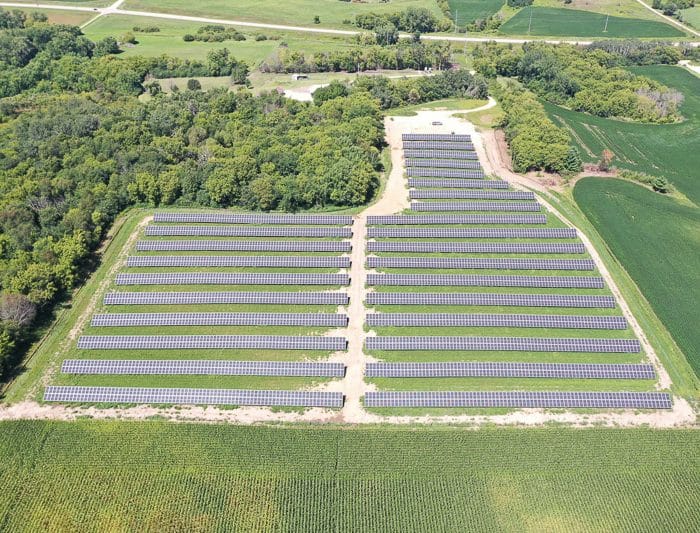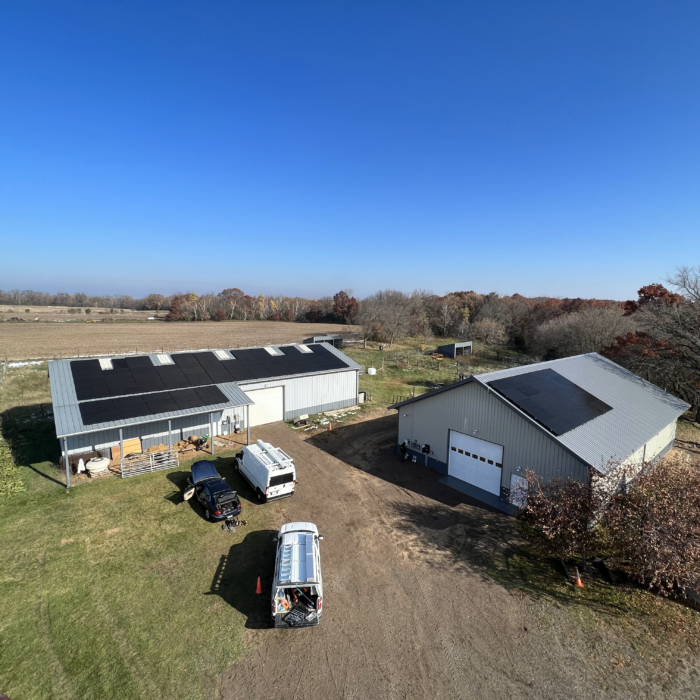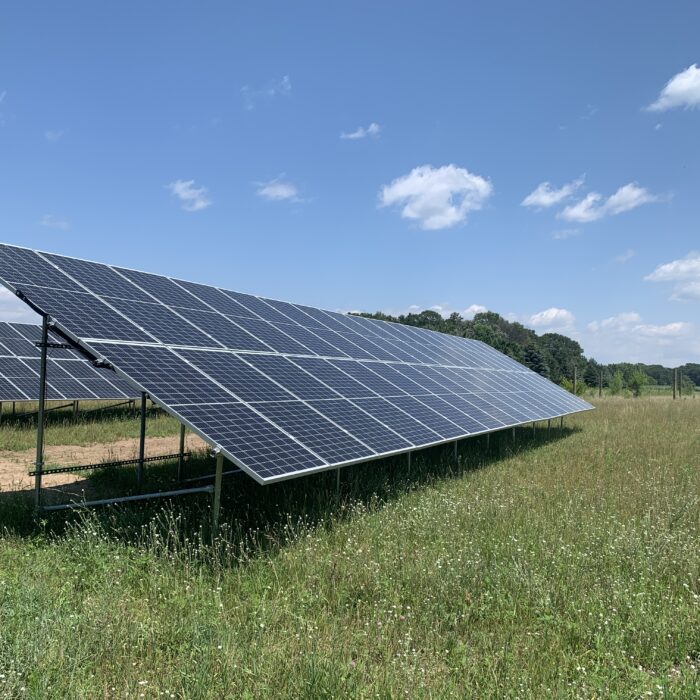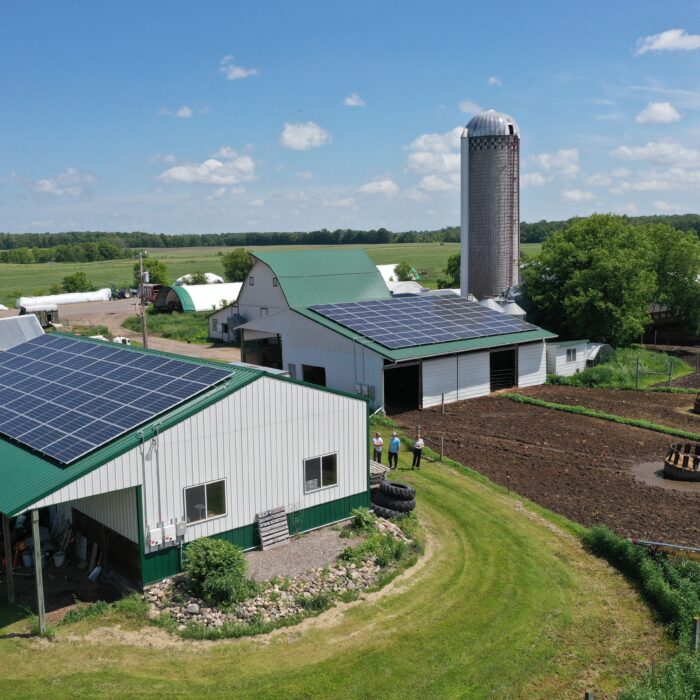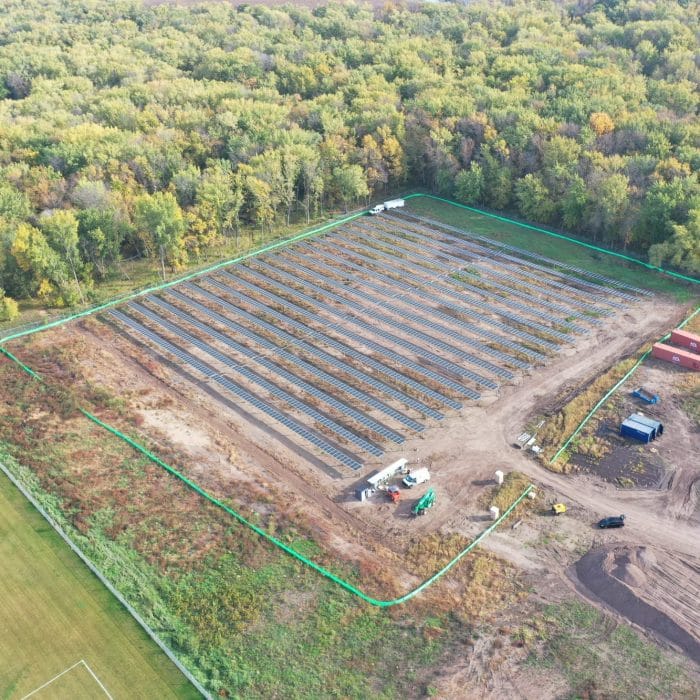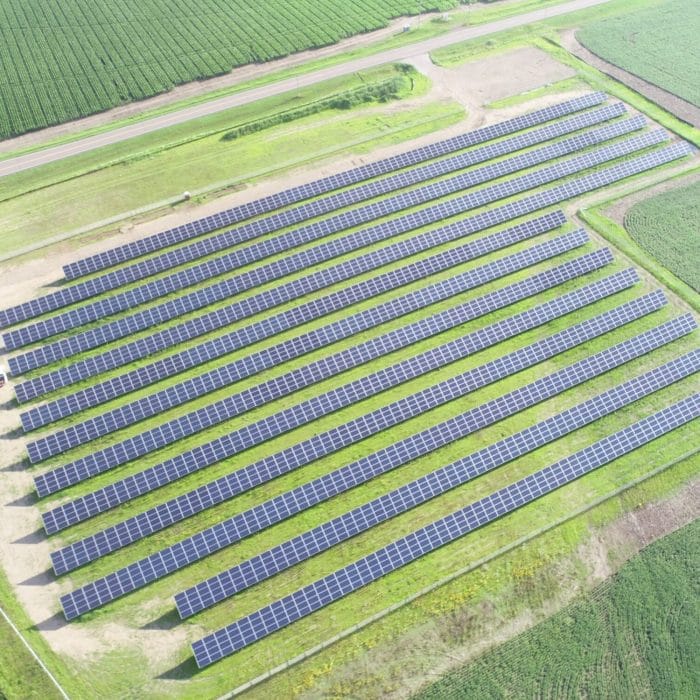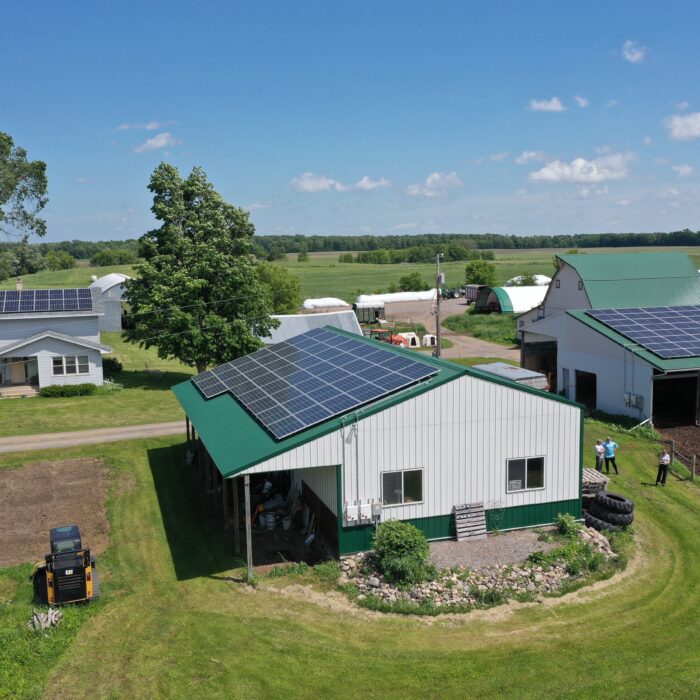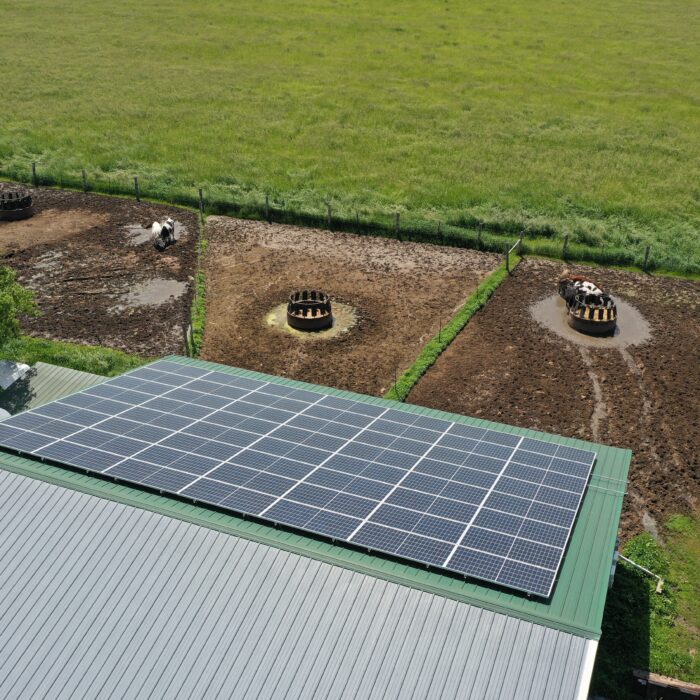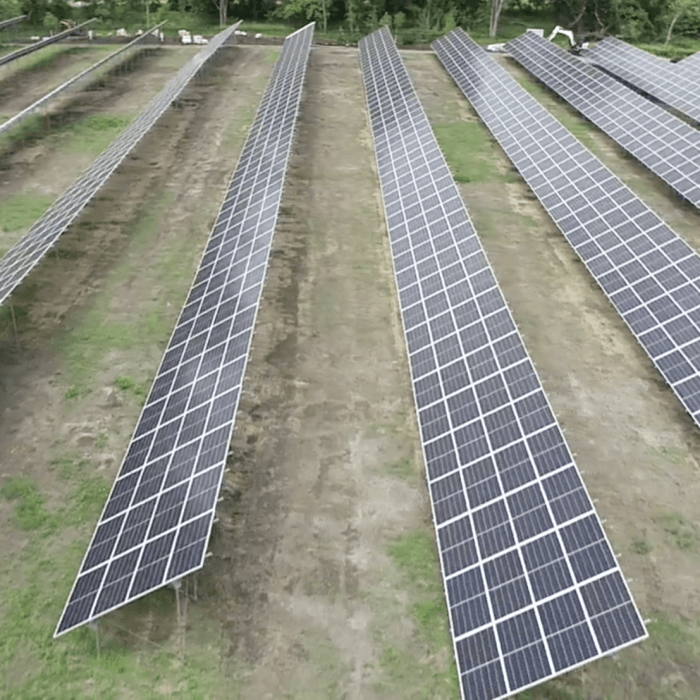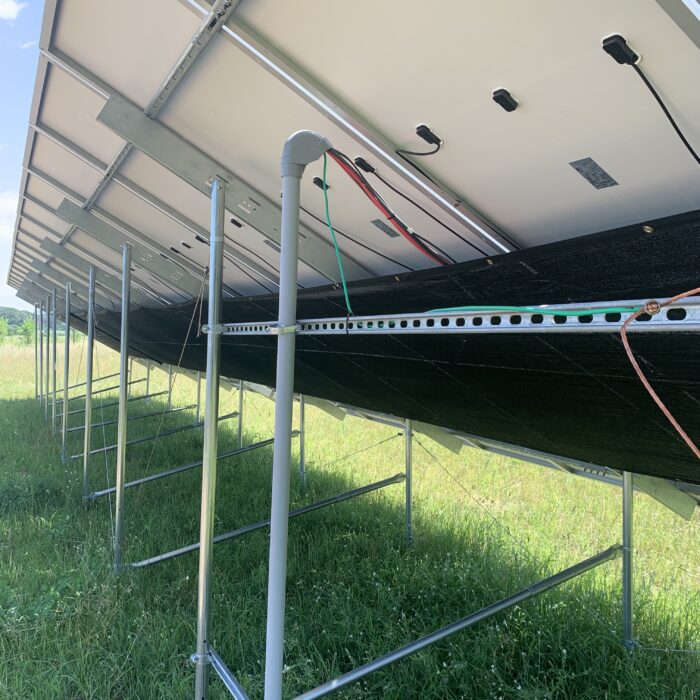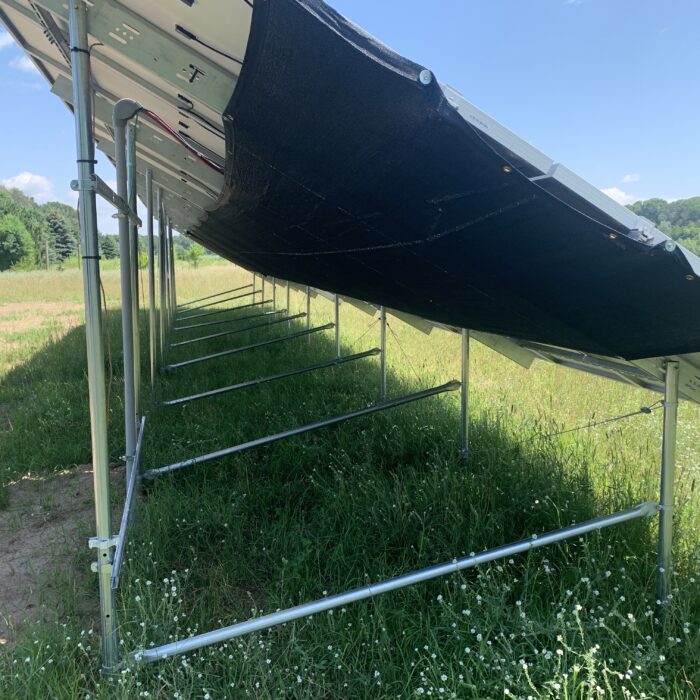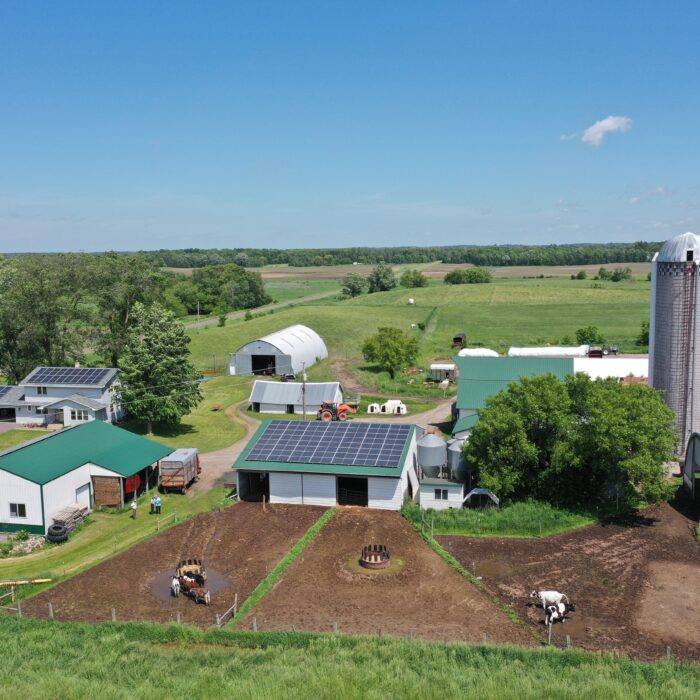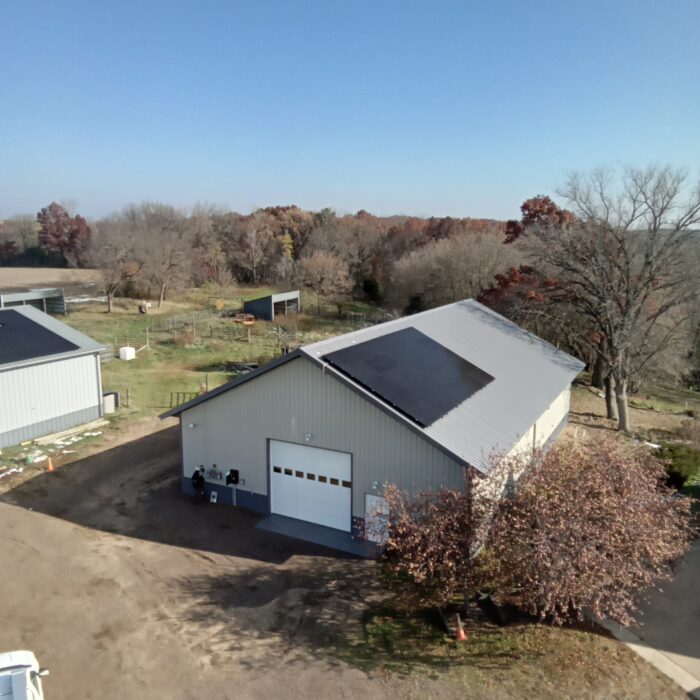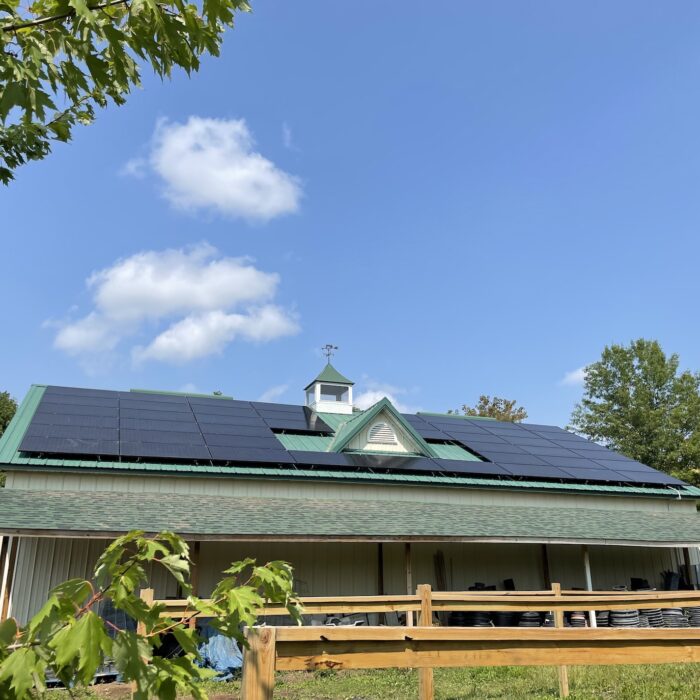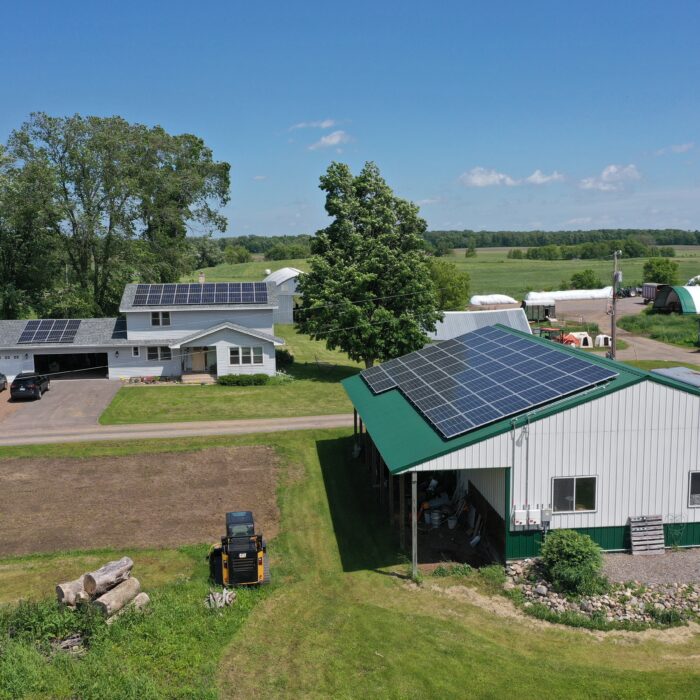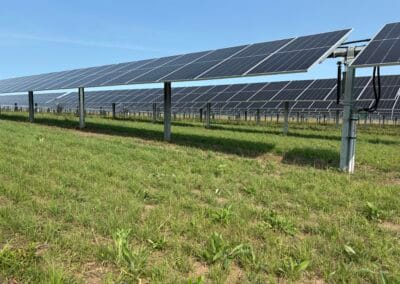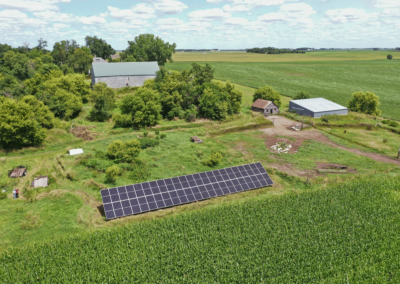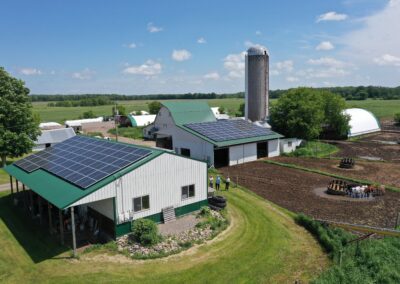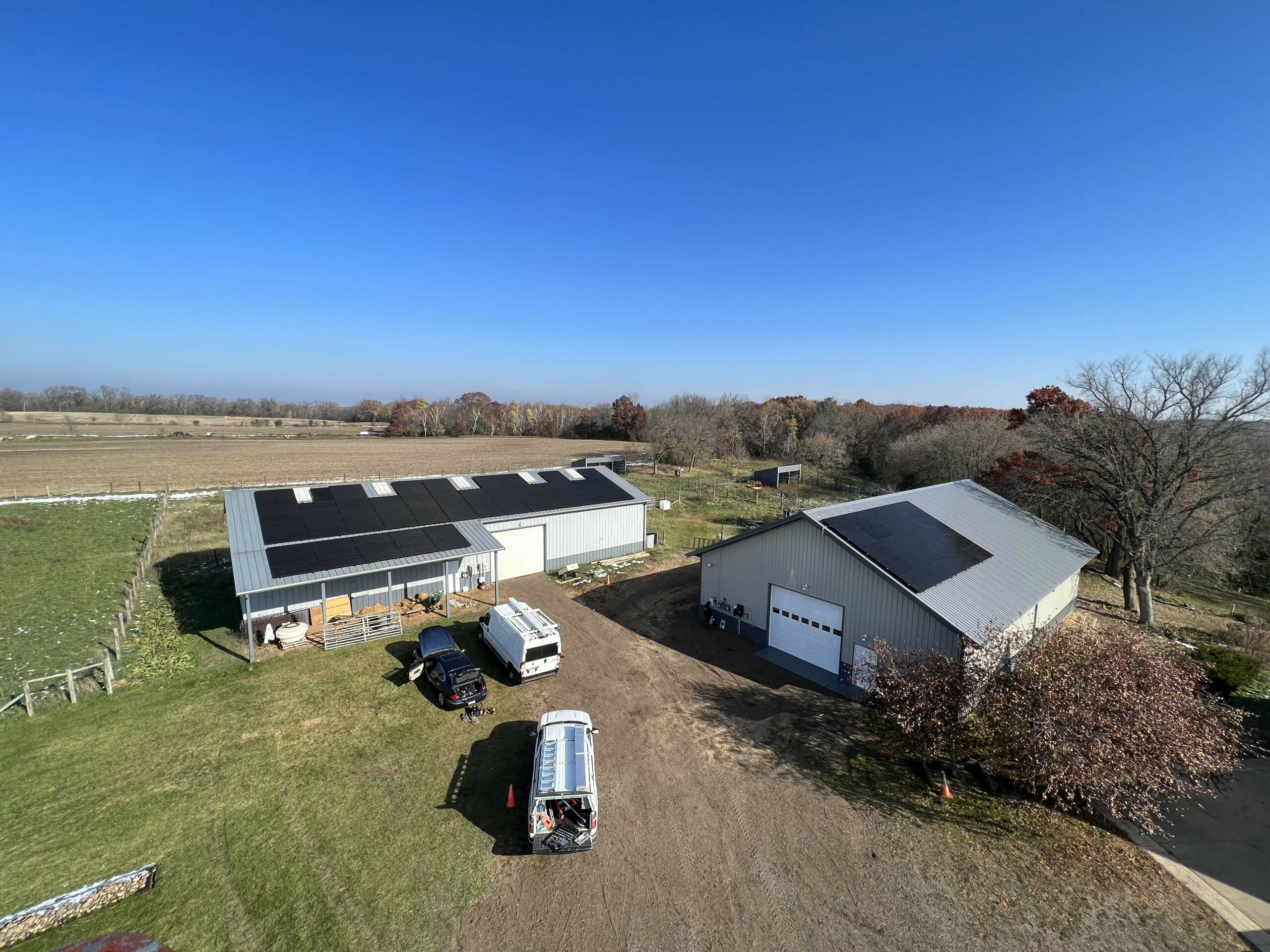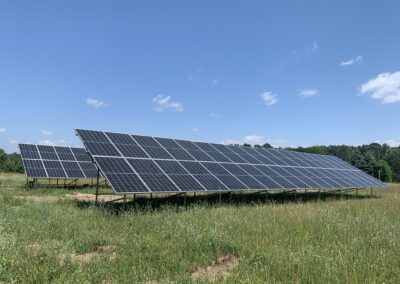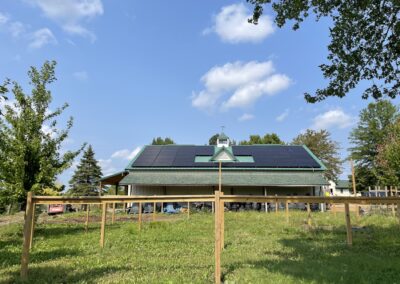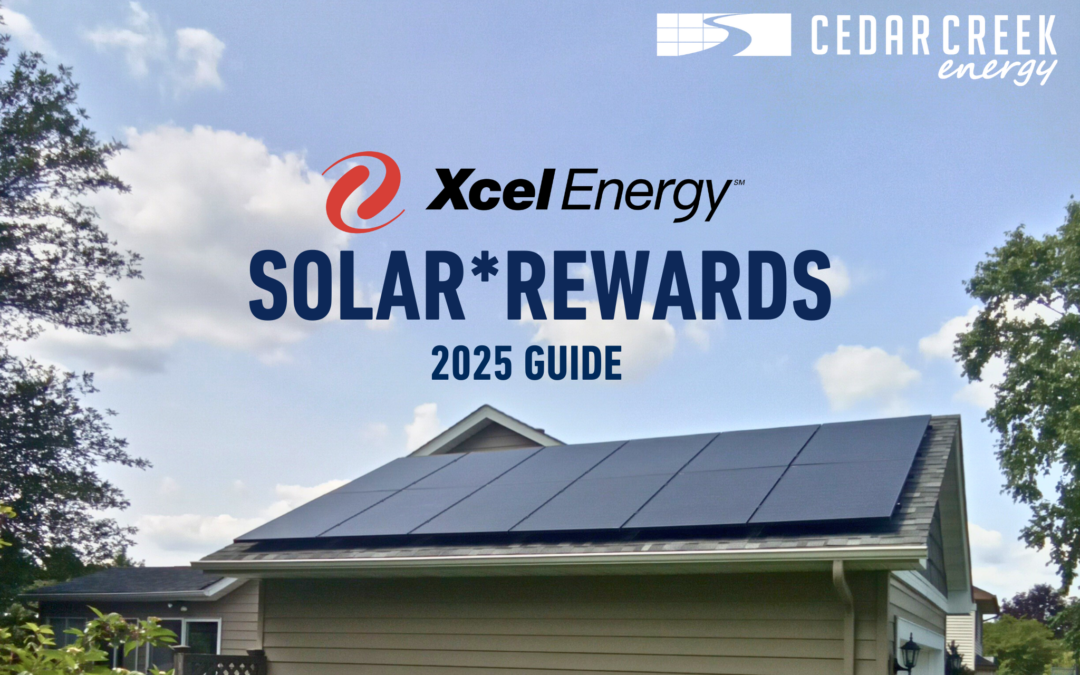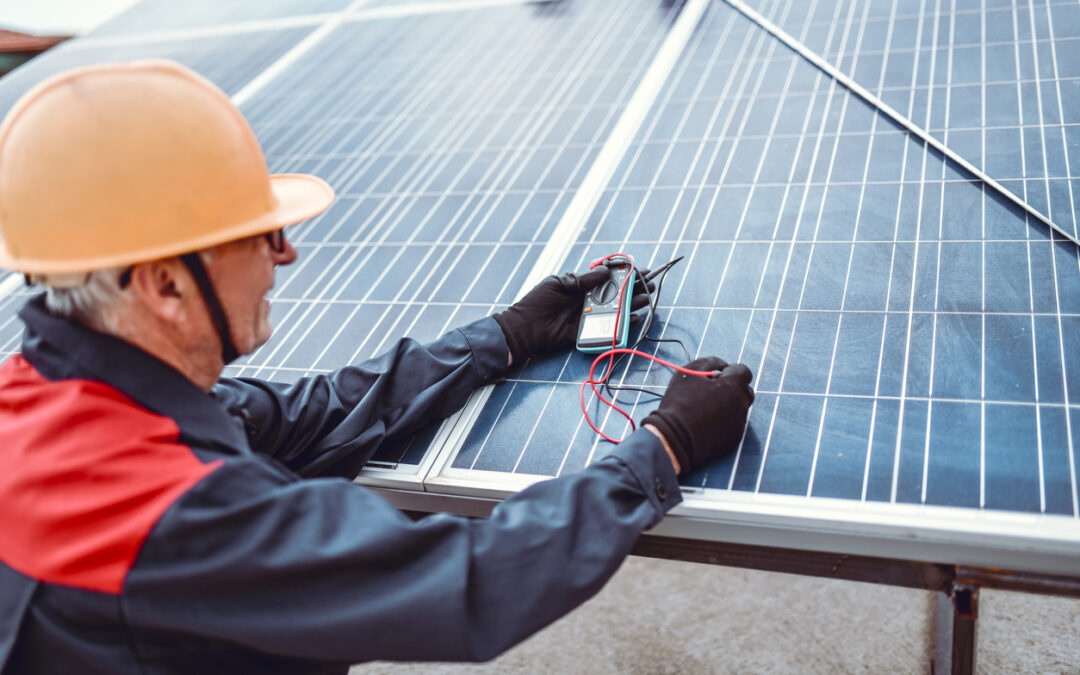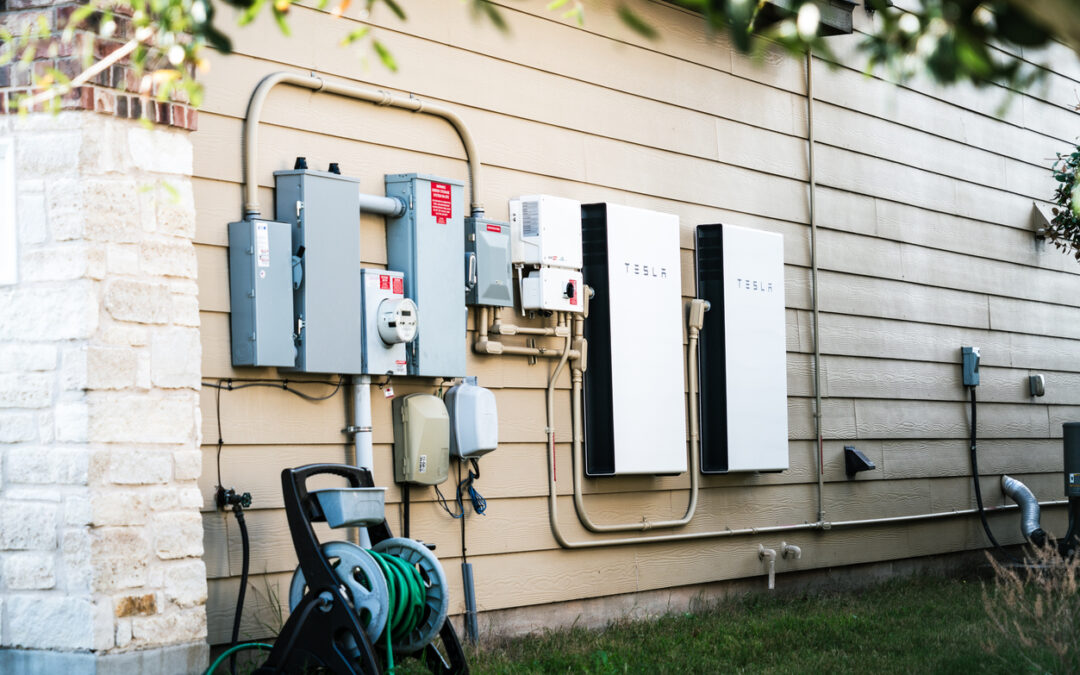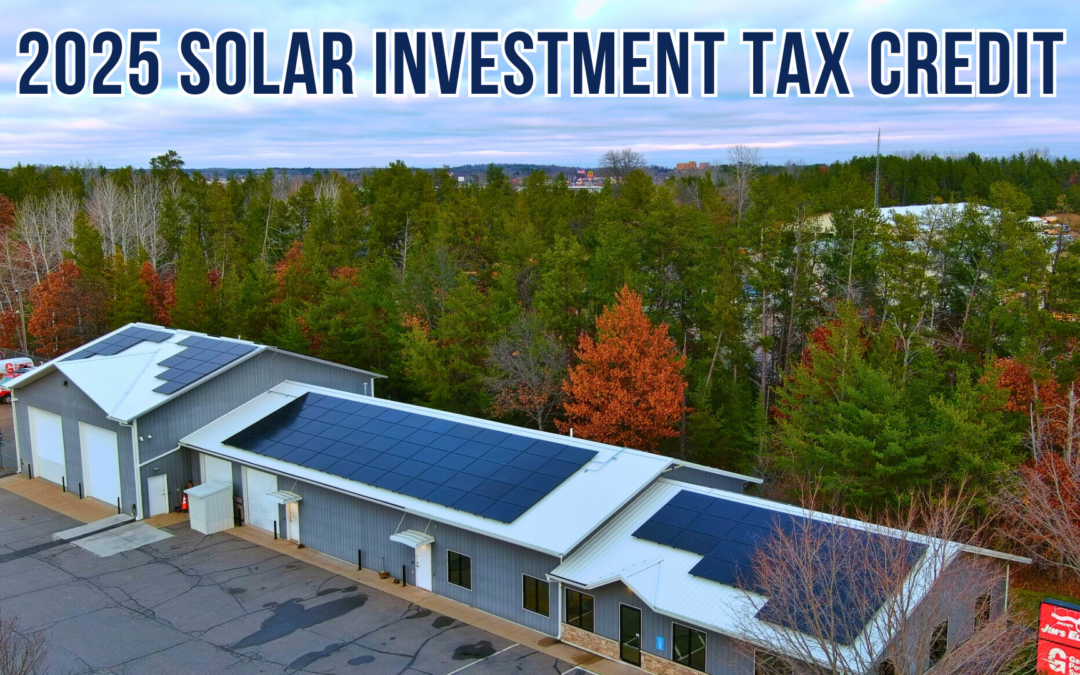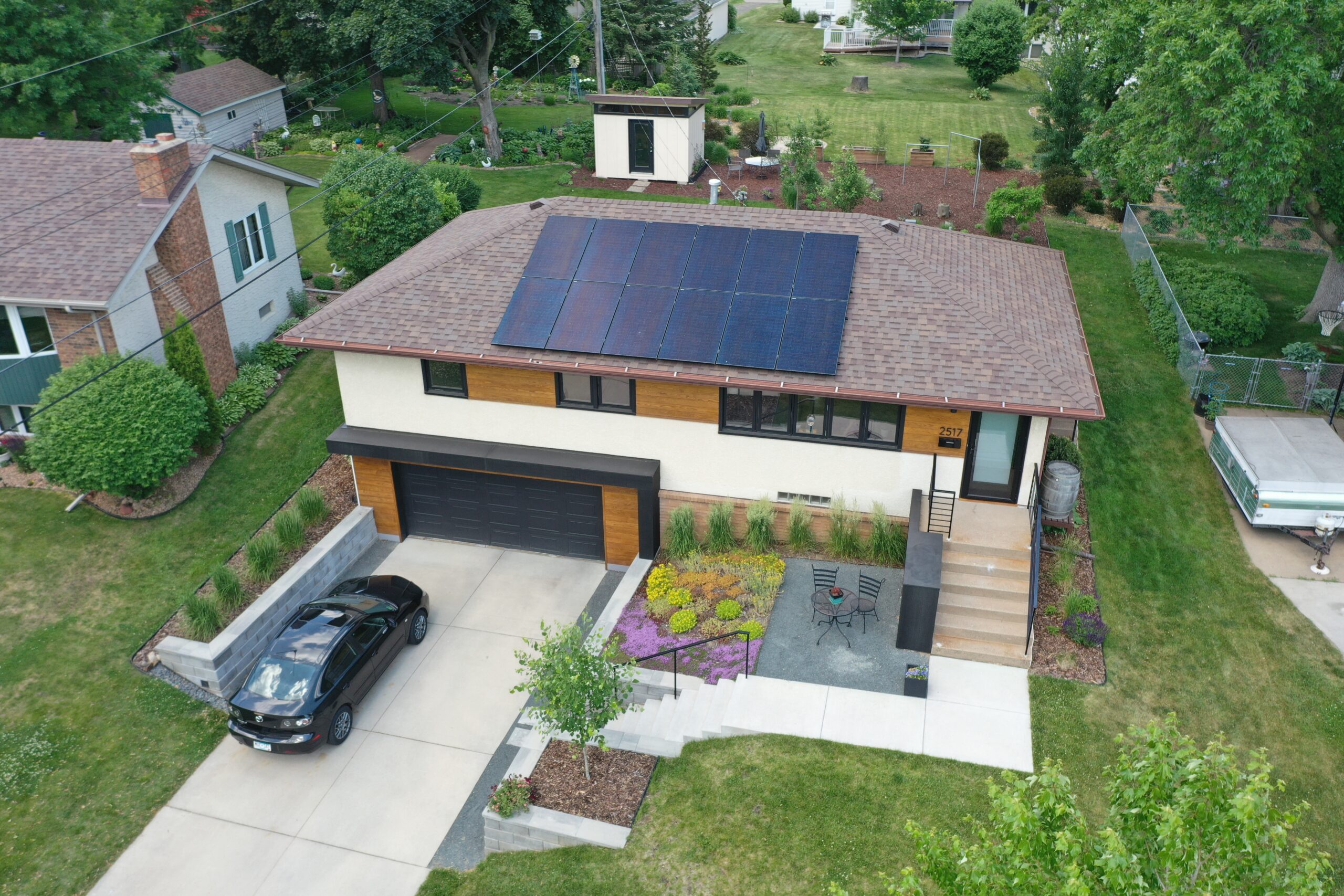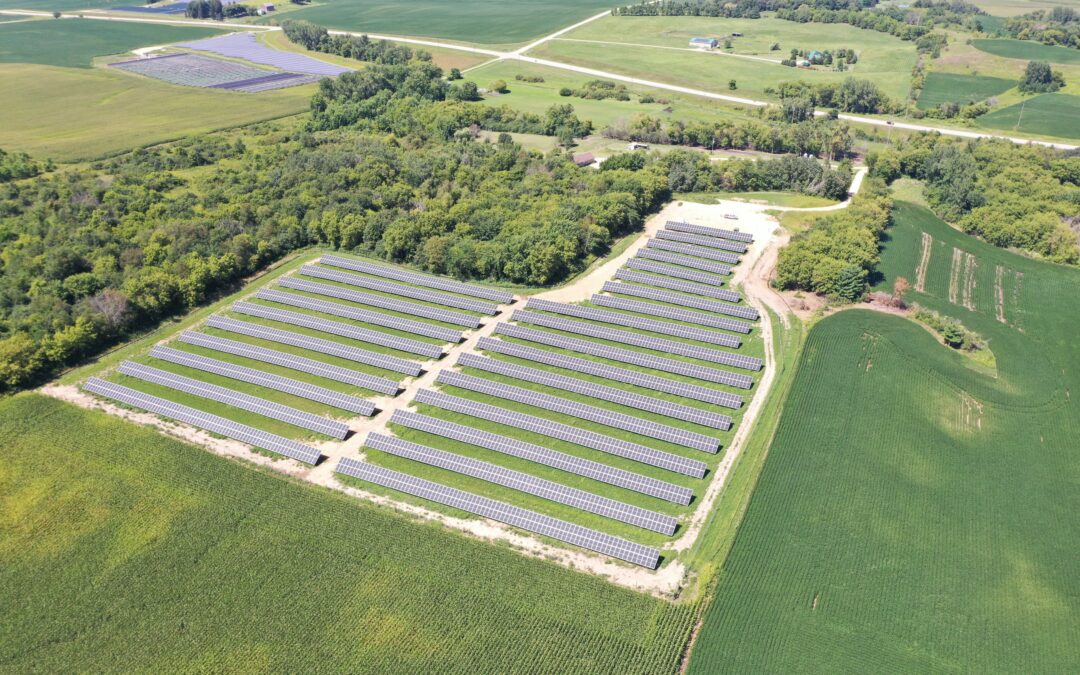Power Your Agricultural Business with Solar
Farming and agriculture have been the backbone of our country for centuries. Farms supply us with essential products: nutritious food, materials for textiles, fuels, and more. However, the increasing demand for high-yield crops and well-bred livestock, coupled with climate change, is challenging farmers’ livelihoods. Many farmers are turning to solar energy to slow the effects of fossil fuel usage and harmful emissions. Commercial solar panel installations for agricultural businesses help power farms, save money, and reduce environmental impact.
Have agricultural land you’d like to lease for solar development? Visit our EPC page to learn more.

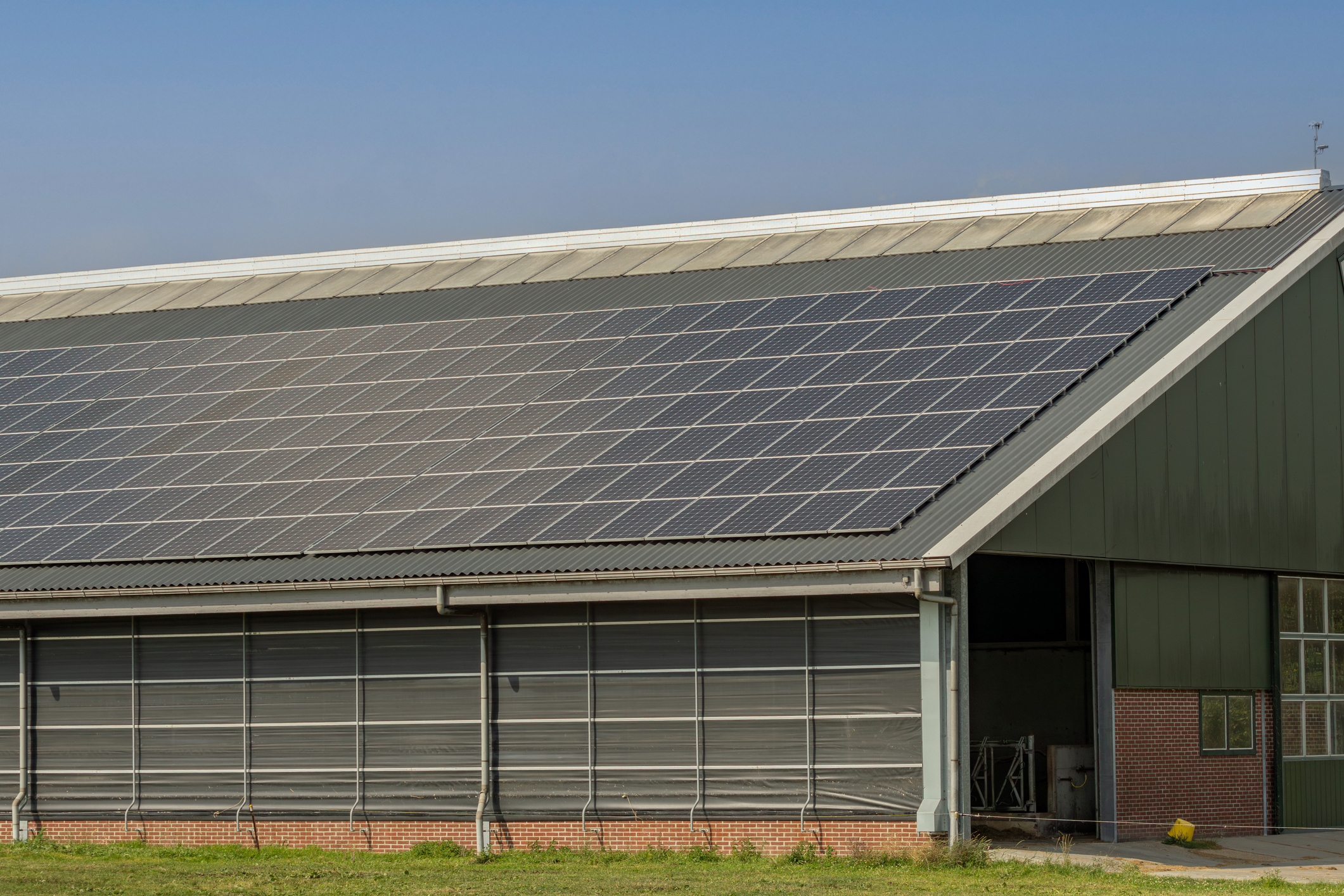
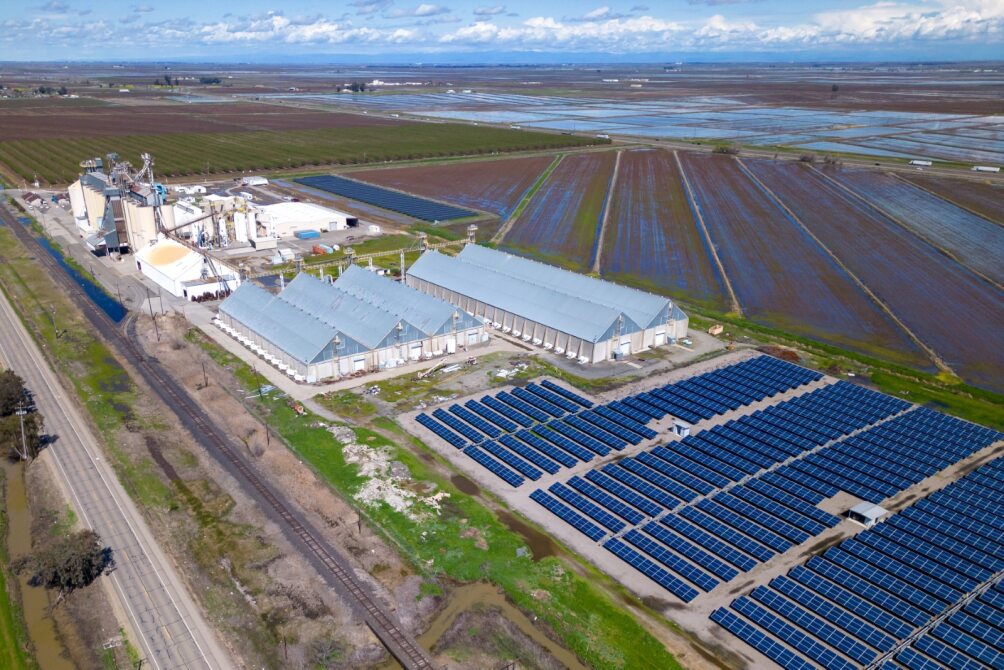
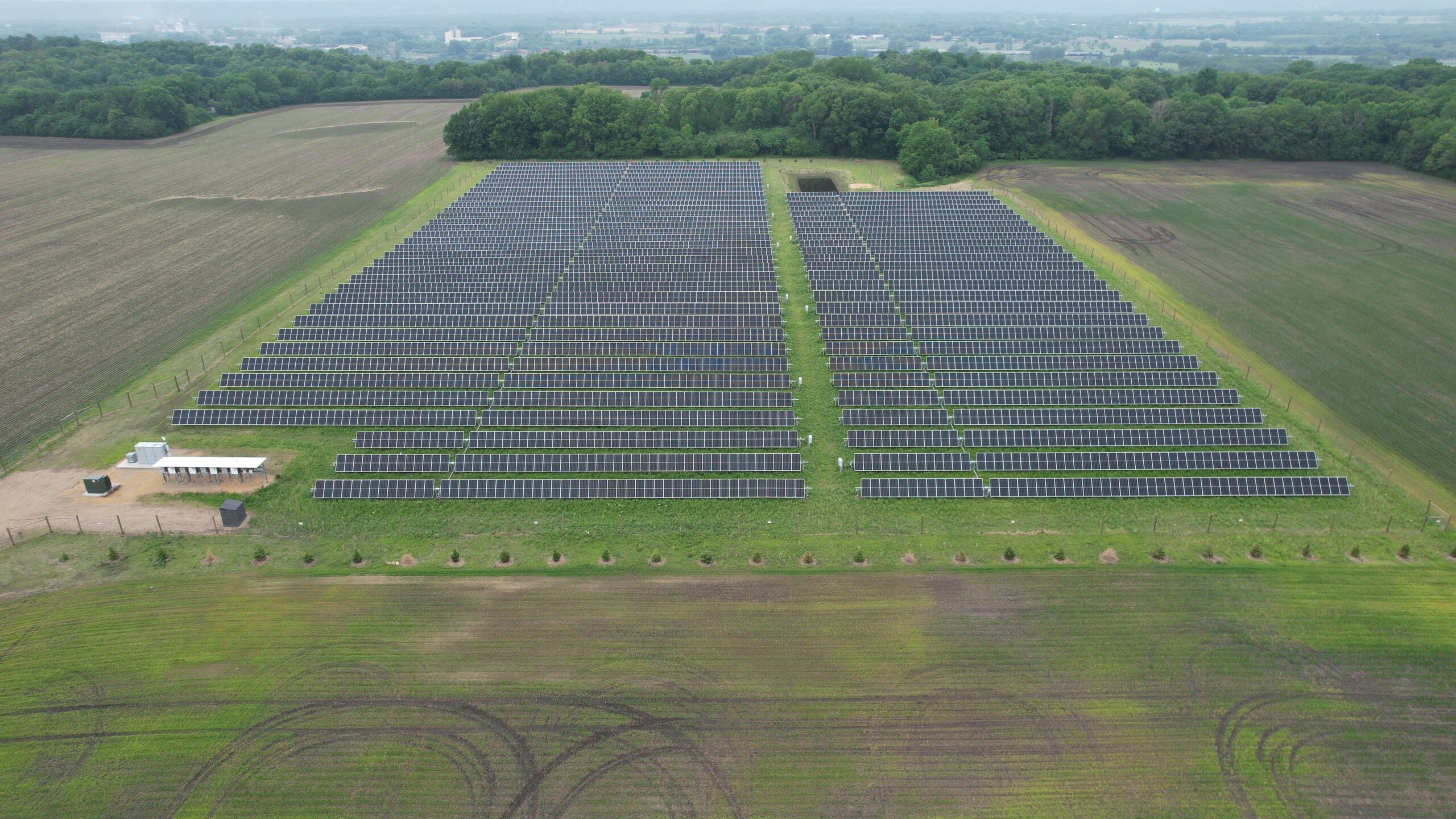
The Benefits of Solar Energy for Farms & Agriculture
Cost Savings
Farms have substantial energy demands, especially for irrigation, livestock operations, and processing equipment. By generating their own electricity from solar panels, farms can significantly reduce their dependence on the grid and lower their energy bills. Over time, these savings can be substantial, allowing farmers to allocate resources to other critical aspects of their operations.
Energy Independence
Solar power provides energy independence for agricultural businesses. Farms often operate in remote areas where grid access may be limited or unreliable. By generating their own electricity, farmers can maintain the continuity of their operations even during power outages or disruptions, ensuring that critical functions like livestock care and irrigation can continue uninterrupted.
Environmental Benefits
Solar energy is environmentally friendly, promoting sustainability and reducing carbon emissions. Agriculture is a sector highly dependent on fossil fuels, whether for powering equipment or transporting goods. By transitioning to solar energy, agricultural businesses can significantly reduce their carbon footprint and contribute to a cleaner environment. Learn more about the environmental benefits of solar energy for farmers.
Increase Property Value
Solar energy systems can increase the overall value of the property. A solar installation demonstrates a commitment to sustainable practices, which can be appealing to buyers and investors. It also positions agricultural businesses as leaders in adopting clean energy solutions, enhancing their reputation and market competitiveness.
Helps and Protects Crops
Delicate crops thrive under solar panel arrays. Growing crops under solar panels helps shield plants from dry, drought-like conditions during the summer heat. Another benefit of using solar power is that freestanding solar panels regulate soil temperature by absorbing sunlight before it reaches the ground. This is excellent for farmers who want to extend the growing season for cool-weather plants.
FAQs about Solar for Agriculture
How can solar energy benefit agricultural operations?
Solar energy can significantly reduce energy costs for farmers by generating clean electricity to power various operations, such as irrigation systems, grain drying, and livestock facilities. It offers long-term energy savings, enhances energy independence, and promotes environmental sustainability.
What types of solar systems are suitable for agricultural use?
Agricultural operations can benefit from various solar systems, including rooftop solar panels, ground-mounted arrays, and solar canopies. The choice depends on available space, energy needs, and specific requirements of the farm.
Are there financial incentives available for installing solar panels on farms?
Yes, there are several financial incentives available for agricultural solar installations in Minnesota. These include federal tax credits, state-specific rebates, grants, and low-interest loans. Additionally, solar systems can offer long-term financial benefits through reduced energy costs and potential revenue from excess energy generation.
Will installing solar panels affect agricultural operations or land use?
Can solar panels provide power during grid outages on farms?
How do solar systems impact the environment on agricultural lands?
Will solar panels withstand Minnesota's harsh weather conditions?
Can I sell excess solar energy back to the grid as a farm owner?
Are there any specific regulations or permits required for agricultural solar installations?
Agricultural solar installations may require permits and compliance with local building codes and zoning regulations. It is essential to consult with local authorities and work with experienced solar installers who can guide you through the necessary regulatory processes.
How can I determine if solar energy is a viable option for my agricultural operation?
Solar Energy in Agriculture: Cost Effective and Eco-Friendly
Farmers know it best: powering an agricultural business takes a lot of energy. You pour your personal energy into your farm, but you also rely on grid power to keep things running. Unfortunately, the use of grid energy to power your farm may contribute to the climate challenges many crop and livestock farmers face each season. Luckily, solar energy is an easily implemented, profitable solution. Cedar Creek Energy is ready to design an energy system tailored to your farm’s needs.
Thanks to numerous state and federal solar programs and grants, it’s very possible that you could have little to no upfront cost when installing an agricultural solar system. Without high start-up costs to consider, your panels will begin saving you money on power right away! Often, the payment towards your solar equipment will be substantially lower than what you were paying monthly for grid power.
